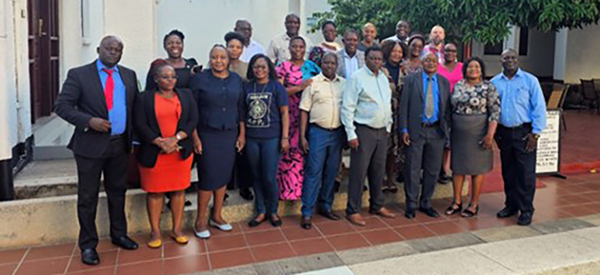Unisa Leads the Way with Decolonisation Workshop in Zambia
The event, designed for district teacher inspectors, centred on the critical theme of decolonising education which aligns with global movements towards more inclusive and representative curricula.
The workshop is part of the broader Decolonising Education for Peace in Africa (DEPA) initiative, supported by a collaborative grant from the Open University in the United Kingdom. Gunter, in partnership with Prof Parvati Raghuram of the Open University, has crafted a comprehensive workshop on decolonising education. This workshop draws from extensive research and case studies across 13 African nations involved in the DEPA project.
Addressing the nuanced challenges within educational systems, the workshop demonstrated effective strategies to decolonise courses and lessons. It emphasised adapting these strategies to the specific constraints of local educational contexts in which educators operate. The content covered was diverse and innovative, including discussions on different types of learning, ubuntu philosophy, the relationship between learners and teachers, African philosophy in education, and practical methods like photovoice and soundscape in teaching.
The timing of the workshop could not have been more opportune, as the Department of Education in Zambia is on the cusp of overhauling its curriculum. The engaged group of 20 district inspectors, drawn from various parts of the country, found the workshop highly relevant and enlightening. Their enthusiasm was palpable, especially given their imminent role in re-curriculating teaching materials.
Participants were not only receptive to the new ideas but also prepared to become ambassadors of this innovative approach. They plan to act as trainers, spreading the knowledge gained from the workshop to teachers nationwide. This effort is facilitated by the fact that the workshop has been developed as an open educational resource (OER), making it widely accessible for further dissemination.
Encouraged by the success of this initiative and the positive feedback from participants, Gunter has been invited to return to Zambia to continue this crucial work in educating educators. This ongoing engagement highlights the significance and impact of the DEPA initiative, promising a future where education in Africa will be liberating, inclusive and profoundly reflective of its rich heritage and philosophies.

